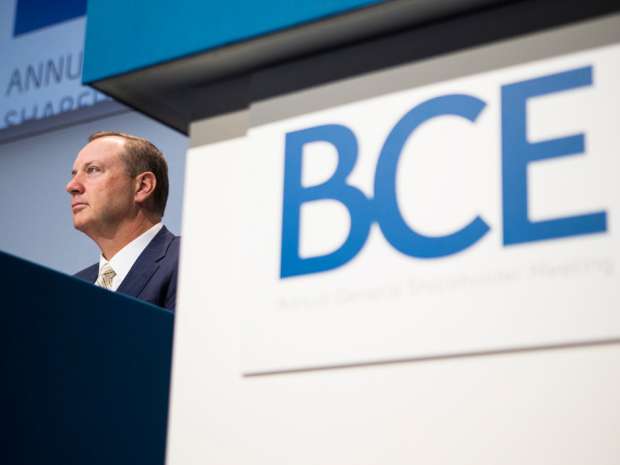FT.com
US Treasury Secretary Timothy Geithner will stay on in the role, despite considering stepping down after the government debt ceiling limit was raised. Mr Geithner confirmed on Sunday that he will remain at his post at President Barack Obama’s request. ”I believe in this president,” http://ftalphaville.ft.com/thecut/2011/08/08/645791/geithner-to-stay-on-as-treasury-secretary/
At least six more Swiss and one Liechtenstein private bank have attracted the attention of US prosecutors investigating whether Swiss bankers helped rich Americans evade tax, the FT reports. The revelations http://ftalphaville.ft.com/thecut/2011/08/08/645746/us-extends-swiss-banking-investigation/
The ECB and G7 gave clear signals on Sunday night and Monday morning that they would intervene in the markets for Italian and Spanish bonds and foreign exchange respectively in an effort to soothe markets http://ftalphaville.ft.com/thecut/2011/08/08/645731/ecb-and-g7-move-to-reassure-markets/
RBS has posted pre-tax loss of $1.1bn as impairments on Greek bonds and Irish mortgages surged, sending its shares to a two-year low in early trade during London markets, Reuters reports. Its investment banking unit saw revenues fall 35 per cent, http://ftalphaville.ft.com/thecut/2011/08/05/644471/rbs-hit-by-big-loss-on-greece-and-ireland/
WSJ.com
Asian markets saw their initial losses deepen in midday trading Monday as investors grew skeptical following the historic downgrade of U.S. debt and moves to shore up European debt over the weekend. Gold also rose to a new nominal record near $1,700 an ounce. But 10-year U.S. Treasury yields fell in midday Asian trading despite worries that the downgrade would trim investor appetite for U.S. debt. By midday, Japan’s Nikkei Stock Average had fallen 2.1%, while Hong Kong’s Hang Seng Index was down 4.1%. Australia’s S&P/ASX 200 shed 2% to a fresh two-year low, and China’s Shanghai Composite fell 3.7%. http://online.wsj.com/article/SB10001424053111904007304576493940024485346.html?mod=WSJ_hp_LEFTTopStories
The first-ever credit downgrade of the U.S. left Wall Street and Washington struggling to come to grips with a new world order.With the U.S. stripped by Standard & Poor’s of its triple-A credit rating, big banks brought in people to staff trading desks over the weekend, and Obama administration officials put a full-court press on skittish investors. Treasury Secretary Timothy Geithner—who agreed to stay through the 2012 election—told NBC News that “S&P has shown really terrible judgment.” http://online.wsj.com/article/SB10001424053111904007304576494691613814326.html?mod=WSJ_Home_largeHeadline
Japan’s current account surplus extended its post-March 11 disaster slide in June as auto, electronics and other manufacturers continued to feel the sting from the devastating earthquake and tsunami, though faster-than-expected progress in rebuilding supply chains is helping the export-driven economy get back on its feet. The surplus in the current account fell 50.2% to ¥526.9 billion ($6.72 billion) from a year earlier, the fourth straight drop after the disaster, the Ministry of Finance said Monday. But the surplus is on track to rebound, analysts say, as the strong yen and sovereign debt concerns in Europe and the U.S. remain http://online.wsj.com/article/SB10001424053111904140604576495040744530926.html?mo d=WSJEUROPE_hpp_LEFTTopWhatNews
The European Central Bank signaled it would purchase government bonds of Italy and Spain on a large scale, in the most dramatic and controversial escalation of its nearly two-year effort to stem Europe’s unfolding debt crisis. ECB intervention to prop up Italy and Spain is a watershed in Europe’s handling of the financial crisis. The central bank has so far insisted that the main responsibility for action lies with national governments. A decision to buy Italian and Spanish bonds is tantamount to conceding that the euro’s member states are unable or unwilling to respond effectively, turning the ECB into the lead firefighter—and the euro zone’s lender of last resort. That could reshape the future of Europe’s monetary union. http://online.wsj.com/article/SB10001424053111904007304576494323043684518.html?mod=WSJ_hp_LEFTTopStories
Mortgage markets in the U.S., which remain on government life support, could be rattled by the downgrade of the U.S. credit rating, potentially raising borrowing costs for consumers. Given the “sufficiently perilous” state of the U.S. mortgage market, a downgrade “can do nothing but harm the market,” says Karen Shaw Petrou, managing partner of Federal Financial Analytics, a research firm in Washington. “The question is how much?” http://online.wsj.com/article/SB10001424053111904140604576494572068990408.html?mod=WSJ_hp_LEFTTopStories
More than 90 U.S. senators signed a letter to President Barack Obama pressing him to sanction Iran’s central bank, with some threatening legislation to force the move, an outcome that would represent a stark escalation in tensions between the two countries. Such a measure, if effectively implemented, could potentially freeze Iran out of the global financial system and make it nearly impossible for Tehran to clear billions of dollars in oil sales every month, said current and former U.S. officials. http://online.wsj.com/article/SB10001424053111904480904576494463569720404.html?mod=WSJ_hp_LEFTWhatsNewsCollection
Indian software exporter HCL Technologies Ltd. said the historic downgrade of U.S. debt over the weekend may lead to a slowdown in decision-making on technology spending by clients in the world’s largest outsourcing market. Though the downgrade may lead to a slowdown in business in the immediate term, the rating change itself can’t be the sole cause for a dramatic shift in outsourcing, Shami Khorana, president, HCL Americas, said in an interview late Sunday. http://online.wsj.com/article/SB10001424053111904007304576495202794672640.html?mod=WSJASIA_hpp_LEFTTopWhatNews
The U.S. corn crop is in trouble, with a blistering heat wave threatening to stunt growth and leave consumers with higher food bills and food producers with lower profits. The scale of the problem will come into focus on Thursday, when the U.S. Department of Agriculture gives the first crop supply-and-demand projections of the year to include field survey s—rather than just an analysis of statistical trends. The early signs are far from promising, which has helped to propel corn prices back above $7 a bushel, a shift that will likely ripple through farmers, food producers and retailers.http://online.wsj.com/article/SB10001424053111903885604576488421727997158.html?mod=WSJEUROPE_hpp_LEFTTopWhatNews
Marketwatch.com
Long-end U.S. Treasury prices extended modest losses in Asian trade Monday, lifting yields on the securities after Standard & Poor’s cut U.S. credit ratings by a notch below AAA and the European Central Bank said it will buy bonds to calm contagion fears over euro-zone debt. Yields on the benchmark 10-year notes inched up to 2.576% during Asian trading hours on Monday, extending gains for the first day in seven on Friday. The return on 30-year bonds rose to 3.8884%. Some short-end Treasurys saw their prices rise, however, with yields on the two-year at 0.2798%, down from 0.28% on Friday. http://online.wsj.com/article/SB10001424053111903885604576488421727997158.html?mod= WSJEUROPE_hpp_LEFTTopWhatNews
Reuters.com
Former Federal Reserve Chairman Alan Greenspan on Sunday downplayed the risk of a double-dip recession in the United States, saying its domestic economy was in better shape compared to its European peers. A double-dip recession “depends on Europe, not the United States,” Greenspan told NBC television’s “Meet the Press.” “The United States was actually doing relatively well — sluggish, but going forward — until Italy ran into trouble.” The U.S. econ omy stumbled badly in the first half of 2011 and came dangerously close to contracting in the January-March period, raising fears that the economy was sliding back into recession. http://www.reuters.com/article/2011/08/07/us-usa-economy-greenspan-idUSTRE7761XF20110807
Federal Reserve Chairman Ben Bernanke, an expert on the Great Depression, once promised that the central bank would never repeat its 1937 mistake of rushing to tighten monetary policy too soon and prolonging an economic slump. He has been true to his word, keeping interest rates near zero since late 2008 and more than tripling the size of the Fed’s balance sheet to $2.85 trillion. But cutbacks in government spending may end up having a similarly chilling effect on the economy, and there is little Bernanke can do to counter that. Back in 1937, the U.S. economy had been growing rapidly for three years, thanks in large part to government programs aimed at ending the deep recession that began in 1 929. http://www.reuters.com/article/2011/08/07/us-global-economy-weekahead-idUSTRE77628V20110807
Bloomberg.com
Gold climbed above $1,700 an ounce for the first time after Standard & Poor’s cut the top U.S. credit rating, fueling a slump in equities and the dollar amid concern that the global economy is slowing. Gold futures for December delivery jumped 3.1 percent to a record $1,702.70 an ounce on the Comex in New York and traded at $1,701.90 at 2:07 p.m. in Melbourne. Silver futures climbed as much as 5.7 percent. Spot gold soared 2.2 percent to $1,700.22 an ounce, also a record. http://www.bloomberg.com/news/2011-08-08/gold-advances-to-record-as-u-s-credit-rating-cut-boosts-demand-for-haven.html
India will be able to sustain its economic growth and the nation’s financial markets can weather “negative sentiments” spreading across the world, Finance Minister Pranab Mukherjee said. “Our growth story is intact and the fundamentals are strong,” Mukherjee told businessmen at an event in New Delhi on Aug. 6. “Our markets have the capacity to withstand the negative sentiments affecting the external world.” http://www.bl oomberg.com/news/2011-08-06/india-s-economy-can-withstand-global-negative-sentiments-mukherjee-says.html
Bill Gross, manager of the world’s biggest bond mutual fund, said Standard & Poor’s showed “spine” by cutting the U.S. debt rating, contradicting Warren Buffett and Legg Mason Inc.’s Bill Miller, who said the rating company erred. “I think S&P has demonstrated some spine; they finally got it right,” Gross said in a Bloomberg Television interview with Tom Keene yesterday. The U.S. has “enormous problems,” he said, referring to the country’s mounting debt. http://www.bloomberg.com/news/2011-08-08/gross-praises-s-p-s-spine-as-buffett-says-rating-company-erred.html
Standard & Poor’s downgrade of the U.S. debt rating curbed demand for the greenback. The U.S. should avoid letting the dollar weaken or taking fresh monetary steps that may worsen the currency’s depreciation, the Xinhua News Agency said yesterday in a commentary, after S&P cut America’s top credit rating by one level to AA+ on Aug. 5. The People’s Bank of China set its daily fixing 0.23 percent stronger at a record 6.4305 per dollar, the biggest advance since November 2010. The currency is allowed to trade up to 0.5 percent on either side of the official rate.http://www.bloomberg.com/news/2011-08-08/yuan-jumps-most-since-april-on-u-s-rating-downgrade-pboc-s-record-fixing.html
South Australia Premier Mike Rann, the nation’s longest serving Labor party leader, said he plans to leave his position on Oct. 20. The premier announced the date of his departure during a televised news conference today in Adelaide during which he endorsed Education Minister Jay Weatherill as his successor. The October departure is earlier than plans announced by Rann last week while he was traveling in India. http://www.bloomberg.com/news/2011-08-08/south-australia-s-premier-rann-to-step-down.html
Japan escalated its campaign to convince investors that the nation’s post-earthquake challenges mean they shouldn’t pile into the yen as a haven from the turmoil over U.S. and European debt. On his third day in the job, Takehiko Nakao, vice finance minister for international affairs, oversaw currency sales that sent the yen down the most against the dollar since September; it recouped some of the loss today. With Nakao’s boss Yoshihiko Noda this week referring to mid-1990s style intervention as a useful reference, investors may need to brace for further action, according to Gareth Berry, a strategist at UBS AG in Singapore. http://www.bloomberg.com/news/2011-08-04/japan-dusts-off-mr-yen-s-toolkit-as-post-quake-rebound-at-risk.html
Australian stocks plunged, dragging the nation’s key index down more than 20 percent from its April 2010 peak, after Standard & Poor’s cut the U.S. credit rating, fueling concern a global economic recovery will stall. Billabong International Ltd. (BBG), the world’s biggest surfwear maker that gets almost half its sales from the Americas, dropped 3 percent. James Hardie Industries SE (JHX), the No. 1 seller of home siding in the U.S., lost 2.7 percent. BHP Billiton Ltd. (BHP), the world’s No. 1 mining company, sank 3.7 percent after commodity prices tumbled. Commonwealth Bank of Australia, the nation’s largest lender by market value, lost 0.7 percent, paring losses after the Group of Seven nations pledged to support financial stability. http://www.bloomberg.com/news/2011-08-08/australia-stocks-near-20-fall-from-peak-after-u-s-downgrade.html
CNBC.com
Standard & Poor’s may downgrade the long-term credit rating of the U.S. once again in less than three months after sending shockwaves through the bond and stock markets by stripping the nation of its top notch triple-A rating last week, according to an emergency Sunday night conference call for clients of Bank of America Merrill Lynch. http://www.cnbc.com/id/44054807
The U.S. doesn’t deserve a AA-plus credit rating, much less triple-A, commodity bull and noted investor Jim Rogers told CNBC on Monday. Rogers said the country was unlikely to be able to pay off its debt and Standard and Poor’s rating cut had come too late and should have happened long ago. “It seems to me it’s physically, humanly impossible for the U.S. to ever pay off its debt,” Rogers said. “They can roll it over and continue to play the charade, but the U.S. is bankrupt.” http://www.cnbc.com/id/44054257
Washingtonpost.com
China’s stocks fell, dragging the benchmark index down as much as 20 percent from a November high, as the loss of America’s top credit rating fueled concern global economic growth will slow. Jiangxi Copper Co. and PetroChina Co., the nation’s biggest producers of copper and oil, dropped at least 2.4 percent after metals and crude prices slumped. China Cosco Holdings Co. fell to a record low, pacing losses by shipping lines, on concern trade will falter. “The downgrade hammered investors’ confidence in the economic recovery and it will be hard to turn that pessimistic sentiment around,” said Mei Luwu, a fund manager at Lion Fund Management Co. which oversees more than $7.8 billion. http://washpost.blo omberg.com/story?docId=1376-LPL3R21A1I4I01-4U95HGP95RNH7B566D48P0F9ND
BBC.co.uk
Police have condemned a wave of “copycat criminal activity” across London in a second night of looting and disorder following riots in Tottenham. Officers had been attacked and a number of police vehicles had been damaged, the Metropolitan Police said. A Foot Locker shop in Brixton, south London, was set on fire while other nearby stores were looted. Three officers were hurt when a vehicle hit them as they tried to make an arrest in Waltham Forest, east London. http://www.bbc.co.uk/news/uk-england-london-14439970
At least 50 people have died after the Syrian army stormed Deir al-Zour, the largest city in the east and a scene of frequent protests, activists say. Scores of tanks and armoured vehicles are reported to have entered several areas of the city after a heavy bombardment that began before dawn. President Bashar al-Assad has defended his security forces’ deadly crackdown. http://www.bbc.co.uk/news/world-middle-east-14435177
The US economy created 117,000 jobs in July, a better-than-expected outcome, according to the US Labor Department. The figure was better than June’s, which was itself revised up from 18,000 to 46,000. The overall unemployment rate in July fell to 9.1% from 9.2%. The news helped the Dow Jones share index to close higher. It comes after the index suffered its biggest one-day drop since 2008 on Thursday due to worries about the global economy. http://www.bbc.co.uk/news/business-14420702
Telegraph.co.uk
Debt crisis: Is this the end for the euro? Europe’s leaders, policymakers and bond vigilantes are engaged in a fatal three-way game of brinkmanship. The showdown will see either careers bite the dust or the end of the euro. Somehow, though, the ultimate price will be paid. http://www.telegraph.co.uk/finance/financialcrisis/8686133/Debt-crisis-Is-this-the-end-for-the-euro.html
Bank of England to cut UK growth rate again. The Bank of England is this week set to slash its forecasts for the UK economy once more and signal that interest rates are going nowhere in an attempt to safeguard the fragile recovery in the wake of the continued shock to global markets following America’s credit downgrade. http://www.telegraph.co.uk/finance/economics/8686263/Bank-of-England-to-cut-UK-growth-rate-again.html
Sharp fall in number of first-time buyers. First-time buyers have fallen below 20pc of the housing market in more than half of the regions across Britain as cash-strapped consumers struggle to step on to the property ladder. http://www.telegraph.co.uk/finance/economics/houseprices/8687380/Sharp-fall-in-number-of-first-time-buyers.html
Independent.co.uk
The Bank of England will indicate later this week whether it is open to a fresh round of quantitative easing in the face of ongoing economic headwinds. The central bank will release its quarterly inflation report on Wednesday, which is likely to support the view that interest rates will stay at 0.5 per cent deep into 2012. Howard Archer, economist at IHS Global Insight, said: “The Bank of England is also likely to indicate that it is keeping the door open to more quantitative easing, particularly if the heightened financial turmoil persists.” http://www.independent.co.uk/news/business/news/bank-of-england-will-leave-door-open-for-qe-2333627.html
Smh.com.au
The clouds of economic gloom gathering over the US and Europe could have a silver lining for Australian borrowers – a double rate cut is now predicted for next month. After global shares sustained $2.5 trillion losses last week and US government had its credit rating cut by Standard & Poor’s late on Friday (US time), investors are now pricing in a 50 basi s point cut by the Reserve Bank when its board meets on September 6, according to Credit Suisse data. http://www.smh.com.au/business/double-rate-cut-tipped-for-september-20110808-1ii9g.html#ixzz1UPZOaXao
Job advertisements declined in July suggesting employment growth will moderate in months to come, a survey shows. The ANZ job ads index, which offers a forward indicator of job market strength, fell 0.7 per cent in July following a 3.7 per cent rise in June. Newspaper job ads fell 0.5 per cent to 8318, while internet ads slid 0.7 per cent to 178,833, hinting at looming job market softness through the second half of the year. “This has left the trend for job advertising in slight decline for four successive months,” said Ivan Colhoun, ANZ Head of Australian Economics and Property Research. http://www.smh.com.au/business/job-market-shows-signs-of-softness-2011 0808-1iidr.html#ixzz1UPZaNdXl
Theglobeandmail.com
The development of Canada’s oil sands will single-handedly undo greenhouse gas gains made by weaning the country’s electrical supply off coal, a government study predicts. The Environment Canada forecast of Canada’s carbon output over the next decade casts in stark terms the challenge facing the country as it pursues major energy development at a time of continued global efforts to bat down emissions. http://www.theglobeandmail.com/report-on-business/oil-sands-expected-to-undo-carbon-cuts/article2122227/
Xinhuanet.com
The Chinese government will not lower oil prices for the time being, as conditions for price cuts have not yet been met, the nation’s economic planning agency told Xinhua Monday. The remarks were made by the head of the pricing department of the National Development and Reform Commission (NDRC) in response to claims by the public that China’s current domestic prices fail to reflect falling international crude oil prices. Global oil prices plummeted recently on concerns that the negative impact of a prolonged U.S. debt crisis and fears of a double-dip global recession will sap oil demand.http://news.xinhuanet.com/english2010/business/2011-08/08/c_131035544.htm
The roller-coaster debate over raising the US national debt ceiling finally concluded after the two parties made compromises. The Democratic Party-led administration removed the political restraint of debt default before the general election in 2012, and the Republican Party-led House of Representatives secured a promise to cut government spending over the next decade. The two parties had threatened each other using the interests of global creditors, staging a preview of next year’s general election. Meanwhile, the hidden trouble in the global financial market and economic recovery has temporarily been avoided. http://news.xinhuanet.com/english2010/indepth/2011-08/08/c_131035408.htm
While the Chinese government made it clear that it was unhappy about the possibility that the United States could default on its debt, it was also clear that China’s concerns are not a major factor in US politics. The United States has always been an incredibly insular country. The vast majority of the public has very little interest in or concern for what is going elsewhere in the world, except insofar as it directly affects the US. http://news.xinhuanet.com/english2010/business/2011-08/08/c_131035390.htm
Russia would not review the amount of reserves it holds in U.S. dollars after the United States lost its AAA credit rating, Russian Deputy Finance Minister Sergei Storchak said Saturday. “We will not review it, because there is not much difference between AAA and AA+,” Storchak was quoted by Interfax news agency as saying. Meanwhile, Pavel Medvedev, a member of the State Duma’s financial market committee, told RIA Novosti news agency the U.S. downgrading would not influence Russia. http://news.xinhuanet.com/english2010/business/2011-08/06/c_131033524.htm
Cs.com.cn
France has “total confidence in the solidity of American economy,” the Economy Minister Fracois Baroin was quoted by AFP on Saturday. “France has a total confidence to the solidity of American economy and its fundamentals, as well as to the determination of American government to implement the educing deficit plan approved by the Congress this week,” Baroin said. His comments came after the rating agency Standard & Poor’s downgraded the US rating from “AAA” to “AA+”, owning to the market concerns over the widening American budget deficit.http://www.cs.com.cn/english/ei/201108/t20110808_2998654.html< SPAN LANG=”sv”>
China is likely to increase benchmark interest rates again in the near term to curb inflation, according to the latest comments by analysts. A let-up of the government’s tightening measures in the third quarter should not be expected, chief economist Li Xunlei of Guotai Junan Securities said rcently. The possibility of more interest rate hikes in the third quarter could not be ruled out, said Li. China’s inflation escalated to a three-year high of 6.4 percent in June. The government is expected to announce July’s consumer price index, the main inflation gauge, this week.http://www.cs.com.cn/english/ei/201108/t20110808_2998637.html
Thehindu.com
Indian stocks plunged deep into the red this morning as the Sensex lost more than 500 points within minutes of the market opening on concerns over the US losing its top-notch credit rating due to mounting debts. The 30-share benchmark index dropped within minutes of opening to 16,793.07 points, its lowest level since June, 2010, registering a fall of 512 points from its previous close. The NSE’s Nifty was also down by 131 points at 5,079.65 points at 0930 hours, after hitting a low of 5,060.05 points earlier in the morning. http://www.thehindu.com/business/Economy/article2335372.ece?homepage=true
Economictimes.com
To understand the furor over the decision by Standard & Poor’s, the rating agency, to downgrade US government debt, you have to hold in your mind two seemingly (but not actually) contradictory ideas. The first is that America is indeed no longer the stable, reliable country it once was. The second is that S&P itself has even lower credibility; it’s the last place anyone should turn for judgments about our nation’s prospects. http://economictimes.indiatimes.com/news/international-business/america-no-longer-stable-reliable-country-sp-credibility-even-lower-paul-krugman/articleshow/9525022.cms
Yohnapnews.co.kr
South Korean banks have no problems with their foreign currency liquidity conditions, the top financial regulator said Monday, downplaying the significance of a regulatory probe into them.
The Financial Services Commission and its executive body, the Financial Supervisory Service (FSS), have created a task force to look into 12 local lenders’ foreign currency liquidity conditions and required them to craft contingency plans to brace for global financial turmoil, sparking fears that the industry may be facing problems. http://english.yonhapnews.co.kr/business/2011/08/08/38/0503000000AEN20110808002600320F.HTML
TheMoscowTimes.com
Russian inflation slowed more than economists expected in July as prices for fresh fruits and vegetables declined. Consumer prices advanced 9 percent from a year earlier last month, down from 9.4 percent in June, the State Statistics Service said Friday. The data matched the figure released Thursday by the Central Bank. Prices were unchanged from a month earlier. The Central Bank left interest rates unchanged Thursday for a third month because of slowing inflation and concern that sluggish growth around the world may hurt Russia’s recovery. : http://www.themoscowtimes.com/business/article/inflation-eases-up-thanks-to-fruit-vegetables/441706.html#ixzz1UPcal0t0
TehranTimes.com
Iran has resumed oil swaps with Caspian Sea countries and will deliver the first cargo to buyers in the Persian Gulf in the next 20 days, the director of the international affairs department of the National Iranian Oil Company said here on Sunday. Mohsen Qamsari told the Mehr News Agency that the swap deals are being resumed after a hiatus of nearly five months. At the time, Oil Ministry officials had argued that the oil swaps were not in the national interests. http://www.tehrantimes.com/index.php/economy-and-business/1271–iran-resumes-oil-swaps-
Iran exported over 10 million tons of mineral goods, worth $2.73 billion, during the first three months of the current Iranian calendar year (began on March 21). In comparison to the corresponding figures of the same time span in previous year, the amounts show 68 percent and 9 percent increase in terms of value and weight, respectively, the IRNA news agency reported. Iran exported $22 billion worth of industrial and mineral goods during the previous calendar year, up 20 percent year on year. http://www.tehrantimes.com/index.php/economy-and-business/1270-irans-quarterly-mineral-exports-up-68












